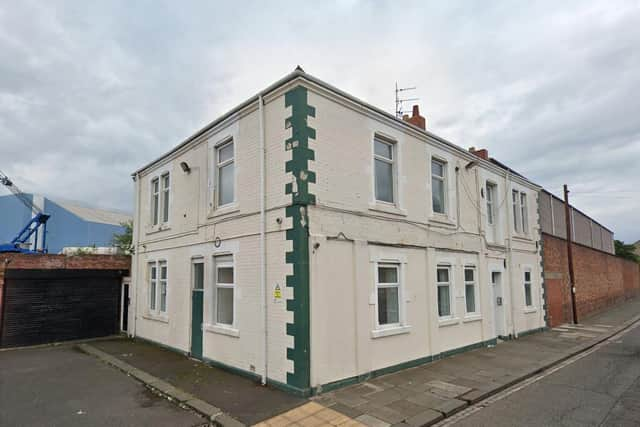Objections to Blyth HMO plans accused of being 'nimby in tone' as appeal of planning refusal is lodged
and live on Freeview channel 276
The building at 86 Regent Street in Blyth, once The Reef Hotel, has a current use class that designates its purpose as for supported living and short-term accommodation, and it has been used to house people who are homeless since the hotel closed.
A planning application was submitted in October to change the use class and allow the landlord, Peter Saleem, to use the building, which has 11 separate bedrooms and shared facilities, as an HMO.
Advertisement
Hide AdAdvertisement
Hide AdNorthumberland County Council planning officers rejected the planning application, saying that not all the rooms complied with new HMO regulations, but this decision has now been appealed.


Planning officers’ report said: “Rooms two, four, five, and 10 do not meet the minimum floor space requirements of 6.51 square metres.
“Given the introduction of this legislation, it is considered that the rooms that fall below the requirements would result in a negative impact on the amenity of the residents of the proposal.”
Concerns were also raised that changing the use of the building would lead to an increase in antisocial behaviour.
Advertisement
Hide AdAdvertisement
Hide AdBlyth Town Council had objected to the application citing these concerns, and the impact it might have on the nearby community centre.
Northumbria Police also objected. Its statement said: “We note, and concur with, the views of Blyth Town Council regarding the over proliferation of HMOs in this locality and how that relates to a disproportionate increase in antisocial behaviour, which undermines the quality of life and community cohesion in the locality.
“Northumbria Police recognise that HMOs serve a purpose in the housing market, but our experience has shown that they also generate a disproportionate level of crime and disorder concerns.
“It is therefore of concern that the application provides no reassurances regarding the management and operation of the HMO.”
Advertisement
Hide AdAdvertisement
Hide AdCouncil officers agreed, saying that the application would allow the building to be operated with less management than it currently is.
Last week an appeal was lodged with government agency the Planning Inspectorate, claiming that turning the building into an HMO would “have less impact and fewer externalities” than its current use.
The appeal argued supported living accommodation residents are more likely to create problems as they have to leave the building to drink or smoke, and accused the concerns raised by the police and others of being “nimby in tone,” a colloquial term meaning ‘not in my back yard’.
The appeal statement said: “The structure needs a new use and to be occupied, or else it is not an effective and efficient use of existing urban floorspace.
Advertisement
Hide AdAdvertisement
Hide Ad“Residents, no matter what their background or income, have to be accommodated somewhere. That is a plain, sad, and simple fact.
“Any prospective occupants are a human life, which exists, and will have to be accommodated somewhere, with any and all externality impacts, be that here or somewhere else.
“At this decently-sized property, with an existing residential occupancy use already lawful, it is rather considered there would be no outweighing tangible or unacceptable adverse impact on residential and other amenities as a HMO when compared with the current use class.”